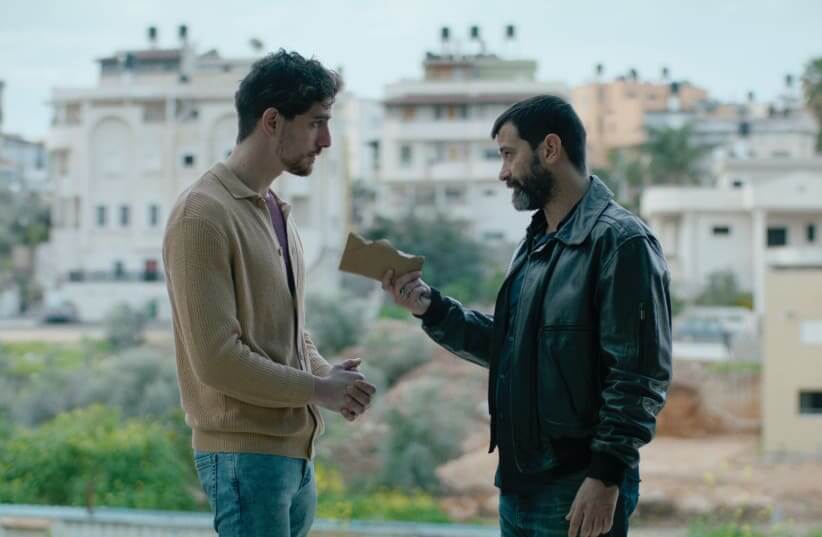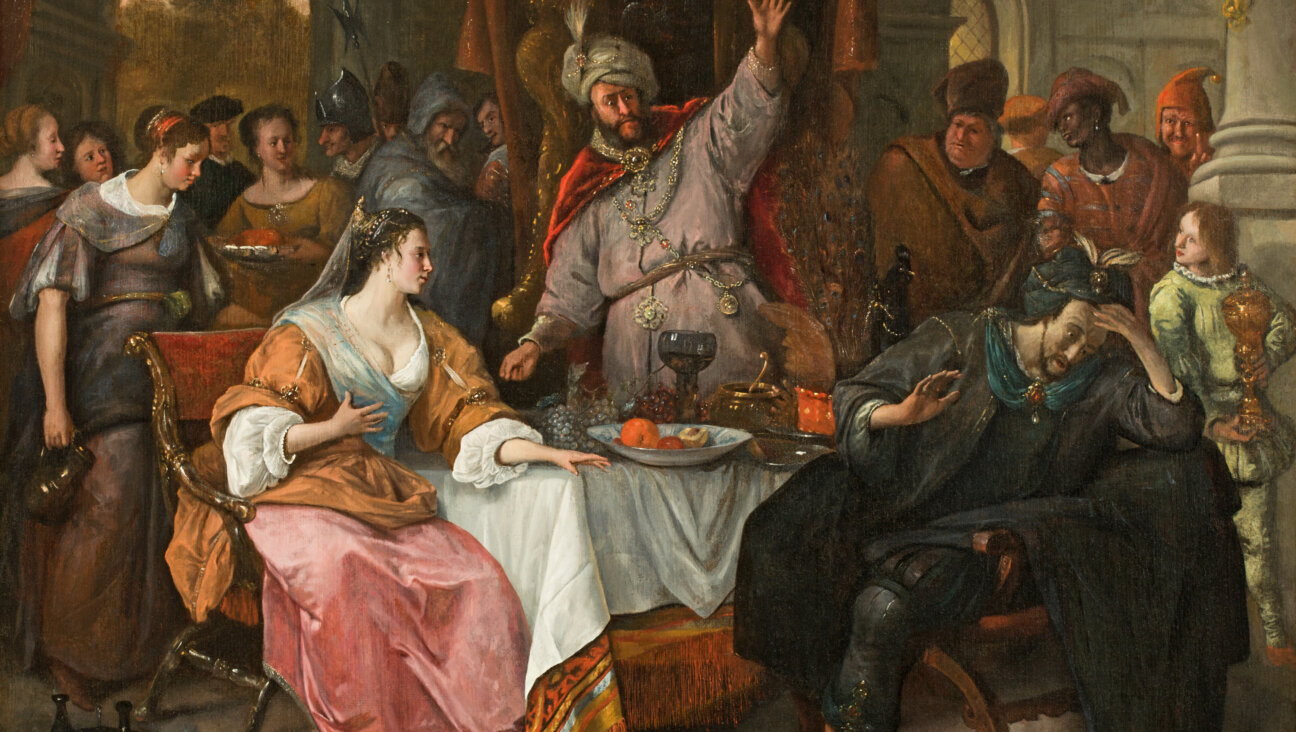A new TV thriller exposes the Israeli power broker no one talks about
TV show ‘East Side’ explores the machinations of the East Jerusalem real estate game — and the Greek Orthodox Church

Momi, right, attempts to buy someone off in basically every episode. Courtesy of Kan
When we talk about Israel, we usually talk about two main groups: the Israelis and the Palestinians. We usually forget that there’s a third group, a minority in population but not in power — the Christians. Specifically, the Greek Orthodox Church.
That church takes a central role in East Side, a fast-paced thriller from Israel’s public broadcasting network, Kan, set in East Jerusalem. The series, which was initially scheduled to show at the Other Israel Film Festival, follows an ex-Shin Bet agent, Momi Ben Dahan, who now works for a rightwing religious Jewish group that’s attempting to buy up land in the Palestinian half of the city in an attempt to sow a greater Jewish presence and, eventually, take it over. And the church, which is the second-largest landholder in Israel, is essential to that scheme.
But selling to Jews is seen as a huge betrayal to the Palestinian people — and Palestinian residents who do it, often out of financial desperation, can face reprisals, both legal and religious; it is considered “high treason” by the Palestinian Authority, a sentence which carries punishments including arrest, hard labor or execution. And nearly all of the church’s adherents in the region are Arab, so they, too, are reluctant to sell.
This means that most of the show’s 10 episodes follow Momi as he cuts back alley deals, threatens and blackmails clients. He arranges to veil his deals via Arab middlemen, so his Palestinian clients can claim that they sold to a Qatari sheikh and not Jews. (The fake “sheikh” can then sell his newly bought house to the Jewish group.)
This conceit may sound far-fetched, but it’s based on real events. Palestinian middlemen do facilitate sales of properties in East Jerusalem. It’s unclear if there’s as much blackmail involved as there is in East Side, but the desperate financial situation of many Palestinians provides enough pressure to sell, especially given the over-market prices the Jewish organizations often proffer. One of the Palestinian homeowners in East Side, who spends the season fleeing a murderous enforcer for the Palestinian Authority, is even named for a real man, Issam Akel, who was held by the PA for months for the crime of selling property to Jews.
But the central intrigue in the show comes with Momi’s ongoing attempt to buy a hotel owned by the Greek Orthodox Church. The hotel stands at Jaffa Gate, the entrance to the Old City, and would symbolically serve to make the area feel predominantly Jewish. Momi, for his part, wants the hotel because he stands to make millions from the sale.
The main challenge is a newly-installed patriarch of the church, who is reluctant to sell, understanding that his Palestinian constituents would see such a move as treasonous. Momi pulls every string he has to manipulate the patriarch. The Israeli government must officially recognize the patriarch for him to effectively run the church, which Momi arranges to withhold on the condition of selling the hotel. He manages to cut power to the church building. He places fake, defamatory stories in the news so the congregation will reject their new leader.
It’s another storyline that comes — with most of its original details intact — from real events. Patriarch Irenaios I was deposed in 2005 after he was accused of selling church properties in East Jerusalem to a rightwing Jewish organization, Ateret Cohanim — a claim he denied. Like the patriarch in East Side, the Israeli government initially withheld recognition of Irenaios, due to fears that he was too pro-Palestinian, and accusations flew that the Israeli government had framed him. Irenaios, meanwhile, maintained his innocence and refused to leave his office — literally. He remained inside for over a decade, receiving food via a basket he lowered from his window on a rope, a detail East Side also uses.
In East Side, all of this history comes with a large side helping of guns, intrigue and romance; its general style — and amoral, grizzled leading man — is very reminiscent of Fauda, the Israeli show about agents infiltrating the West Bank. But that’s to its detriment. Storylines get muddled when entire episodes focus on Momi’s affair with his daughter’s therapist or a side scheme he’s running to buy a different property. These tangents feel like bald attempts to humanize our antihero: Look, he’s not just an evil blackmailer, he’s a loving father! He helps Palestinians flee the country! But, of course, only after his own scheme has put them at risk.
Instead, East Side’s most compelling figure is the patriarch, who does his best to live up to his responsibilities as a leader in a politically and religiously complex region. And East Side would be a better show if it spent more time on the tensions that exist within the church — it’s run by Greeks, yet serves largely Palestinians, so why are there so few Arab clergymen? Do some within the church work with Israel, and others oppose it? — and showed the political maneuvering from inside the Christian institution, a perspective rarely examined.
But East Side is an Israeli show, and is likely already challenging its audience’s sensibilities with its scenes in Arabic, and Momi’s unflattering depiction of the inner machinations of the Israeli government. So instead, it sprinkles in just enough real-life history to, hopefully, inspire viewers to do their own research. Because the history at play gives a new light to the ongoing conflict, and reminds us that there are many more powerful players in the region than we might realize.























